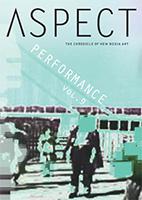In August 2000 I started the “Looking for a Husband with EU Passport” project: www.cac.org.mk/capital/ostojic [5]. After publishing an ad with this title, I exchanged more than 500 letters with numerous applicants from around the world. After a correspondence of six months with a German man K. G. I arranged our first meeting as a public performance in the field in front of the Museum of Contemporary Art in Belgrade, 2001. One month later, we were officially married in New Belgrade. With the international marriage certificate and other required documents I applied for a visa. After two months I got one entrance family unification visa for Germany, limited to three months, so I moved to Düsseldorf where I was officially living for three and a half years.
In spring 2005 my three-year visa expired, and instead of granting me a permanent residence permit, the authorities granted me only a two-year visa. After that K. G. and I got divorced, and on the occasion of my “Integration Project Office” installation opening in Gallery 35 in Berlin (July 1, 2005), I organized the “Divorce Party.”
In order to claim my own rights, which I have been deprived of by current EU laws, I explicitly applied the strategy of tricking the law (as earlier with “Illegal Border Crossing”) to gain the right to move freely and live and work in diverse locations.
Migrants are constantly abstracted by the media and discriminatory laws and treated often as one alienated group. The aspect of personal and direct speech, as opposed to abstract speech is an important element throughout my work. I showed my self in that position, my individual story as well as collecting later on the individual stories of others that I met, so the audience gets a chance to understand the variety and deepness and to identify with me, with them, with us.
“While using her own body within different cultural and social contexts as a retort to various power-games Ostojic inevitably entered the realm of "gender troubles". Her reflection on gender issues is focused on the economic and political phenomena that accompany the phantasm of European Community that is shared by many Eastern European countries. In her project "Looking for a Husband with a EU Passport" she reveals and ironies the truth about the traffic with women, prostitution, pragmatic marriages and all other "side effects" of transition. In such conditions the economy of gendering is inevitably the economy of power over the body. The self-irony of this project is contained in the intentional aesthetics of artist's usage of her own image for the Internet ad: her skinny shaved body without any traces of sensuality and seducing gaze or gesture conveys completely opposite visual message. From this conflict of the textual invitation with the visual repulsion was born the gap of ambiguity between attraction and abjection.”……From essay by Suzana Milevska


